#default v
Explore tagged Tumblr posts
Text

238 notes
·
View notes
Text

Shit talking~
373 notes
·
View notes
Text

Vincent <3
#cyberpunk 2077#cp2077#default male v#male v cyberpunk#cyberpunk photomode#default v#male v#cp2077 photomode#male v monday
58 notes
·
View notes
Text

Steven meme bandwagon, 2077 edition
#cyberpunk 2077#johnny silverhand#steven meme#v#masc v#meet hanako at embers#teddo doodles#cyberpunk meme#art#default v#steven universe meme
28 notes
·
View notes
Text

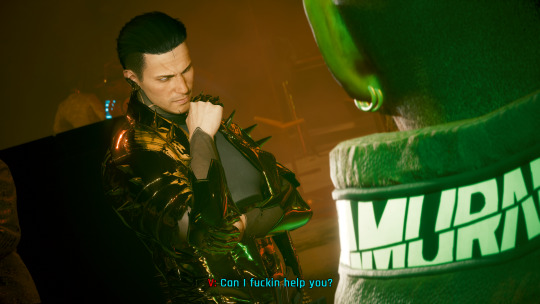
🙃
#cyberpunk 2077#oc: william eriksson#oc: m1d45#default V#male V#Just Midas being a fuckin creep#He has a very unhealthy obsession with Will
17 notes
·
View notes
Text
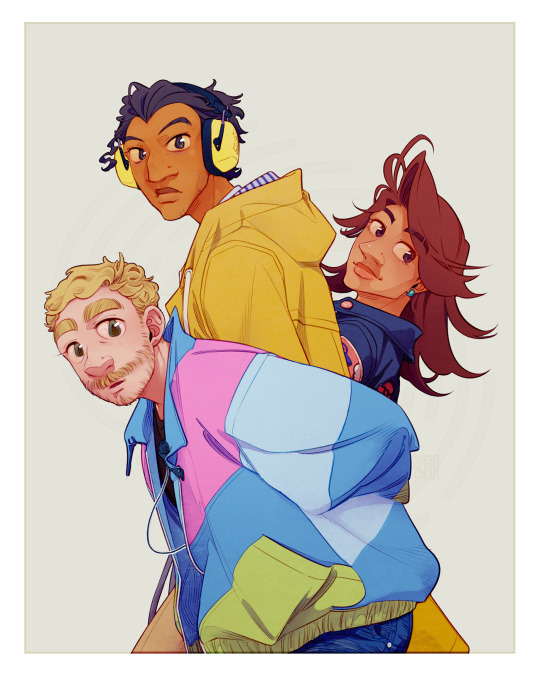
podcast people in my phone
#sherlock and co#s&co#sherlock holmes#john watson#mariana ametxazurra#been messin around with this piece for like over a week now. I think this is just mostly to have a general pointer of their design in my#''proper'' style. literally named this file cover.png in my folders lmao#I feel like it isnt as candycore as the chibi version. but its still at a level of colors Im happy with. thats good for me#love giving john watson the default medium-size v-neck when canonically he wears like exclusively merch tees#(maybe its under the v-neck lets all believe that)#anyways. things are moving! lotsa stuff I cant show anyone but my coconspirators... but Im sitting on. Some stuff#gettin there with work... settin up stuff... being insane in march.... da whole package#gonna be having. a real interesting week soon. we'll see what comes of it!#but for now. I sleep. have a good night lads! look both ways before crossing the street
2K notes
·
View notes
Text
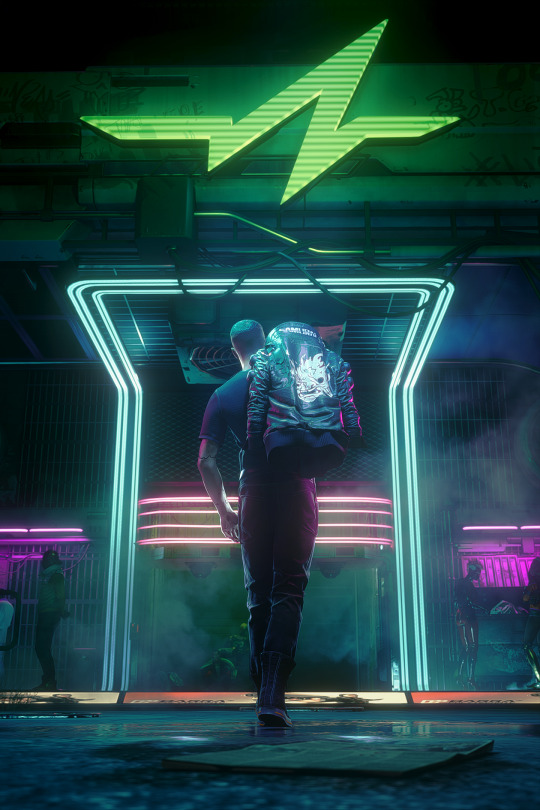

Welcome to the Afterlife.
#cyberpunk 2077#male v#default male v#male v monday#booooo i wanted to post something celebratory for v's birthday but patch 2.13 completely bricked my game n i just got it fixed today T_T#happy belated bd i guess#*#n8.jpg
320 notes
·
View notes
Photo
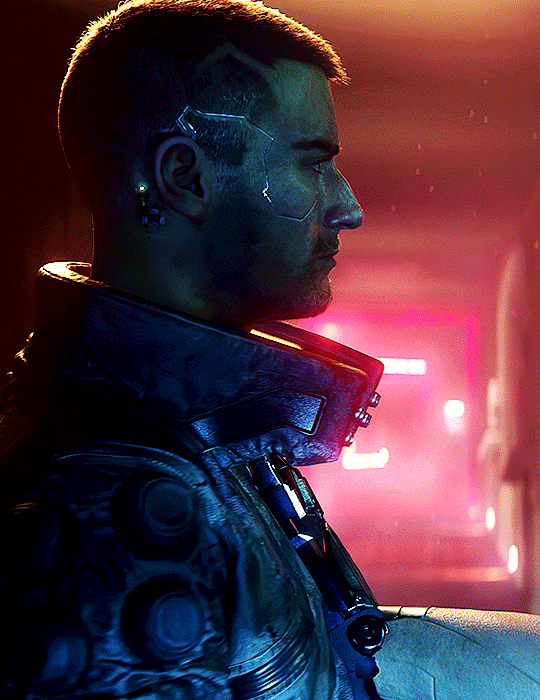



V → E3 Cinematic Trailer Cyberpunk 2077 (2020) dev. CD Projekt Red
#cyberpunk 2077#default male v#cyberpunkedit#cyberpunk2077edit#gamingedit#dailygaming#videogamemen#usernuclear#userredacted#usermichi#userfaarkas#userwolfkissed#userfarllee#aartyom#*
2K notes
·
View notes
Text
The paradox of choice screens
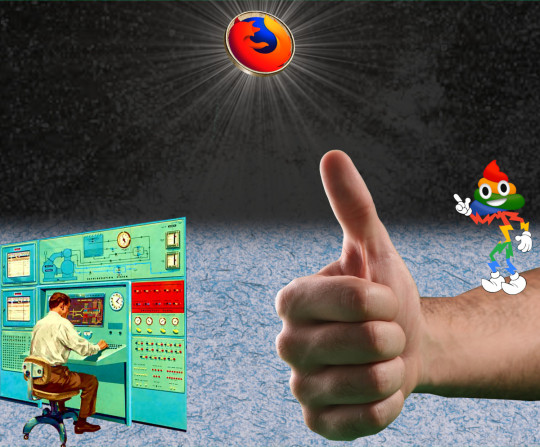
I'm coming to BURNING MAN! On TUESDAY (Aug 27) at 1PM, I'm giving a talk called "DISENSHITTIFY OR DIE!" at PALENQUE NORTE (7&E). On WEDNESDAY (Aug 28) at NOON, I'm doing a "Talking Caterpillar" Q&A at LIMINAL LABS (830&C).

It's official: the DOJ has won its case, and Google is a convicted monopolist. Over the next six months, we're gonna move into the "remedy" phase, where we figure out what the court is going to order Google to do to address its illegal monopoly power:
https://pluralistic.net/2024/08/07/revealed-preferences/#extinguish-v-improve
That's just the beginning, of course. Even if the court orders some big, muscular remedies, we can expect Google to appeal (they've already said they would) and that could drag out the case for years. But that can be a feature, not a bug: a years-long appeal will see Google on its very best behavior, with massive, attendant culture changes inside the company. A Google that's fighting for its life in the appeals court isn't going to be the kind of company that promotes a guy whose strategy for increasing revenue is to make Google Search deliberately worse, so that you will have to do more searches (and see more ads) to get the info you're seeking:
https://pluralistic.net/2024/04/24/naming-names/#prabhakar-raghavan
It's hard to overstate how much good stuff can emerge from a company that's mired itself in antitrust hell with extended appeals. In 1982, IBM wriggled off the antitrust hook after a 12-year fight that completely transformed the company's approach to business. After more than a decade of being micromanaged by lawyers who wanted to be sure that the company didn't screw up its appeal and anger antitrust enforcers, IBM's executives were totally transformed. When the company made its first PC, it decided to use commodity components (meaning anyone could build a similar PC by buying the same parts), and to buy its OS from an outside vendor called Micros-Soft (meaning competing PCs could use the same OS), and it turned a blind eye to the company that cloned the PC ROM, enabling companies like Dell, Compaq and Gateway to enter the market with "PC clones" that cost less and did more than the official IBM PC:
https://www.eff.org/deeplinks/2019/08/ibm-pc-compatible-how-adversarial-interoperability-saved-pcs-monopolization
The big question, of course, is whether the court will order Google to break up, say, by selling off Android, its ad-tech stack, and Chrome. That's a question I'll address on another day. For today, I want to think about how to de-monopolize browsers, the key portal to the internet. The world has two extremely dominant browsers, Safari and Chrome, and each of them are owned by an operating system vendor that pre-installs their own browser on their devices and pre-selects them as the default.
Defaults matter. That's a huge part of Judge Mehta's finding in the Google case, where the court saw evidence from Google's own internal research suggesting that people rarely change defaults, meaning that whatever the gadget does out of the box it will likely do forever. This puts a lie to Google's longstanding defense of its monopoly power: "choice is just a click away." Sure, it's just a click away – a click, you're pretty sure no one is ever going to make.
This means that any remedy to Google's browser dominance is going to involve a lot of wrangling about defaults. That's not a new wrangle, either. For many years, regulators and tech companies have tinkered with "choice screens" that were nominally designed to encourage users to try out different browsers and brake the inertia of the big two browsers that came bundled with OSes.
These choice screens have a mixed record. Google's 2019 Android setup choice screen for the European Mobile Application Distribution Agreement somehow managed to result in the vast majority of users sticking with Chrome. Microsoft had a similar experience in 2010 with BrowserChoice.eu, its response to the EU's 2000s-era antitrust action:
https://en.wikipedia.org/wiki/BrowserChoice.eu
Does this mean that choice screens don't work? Maybe. The idea of choice screens comes to us from the "choice architecture" world of "nudging," a technocratic pseudoscience that grew to prominence by offering the promise that regulators could make big changes without having to do any real regulating:
https://verfassungsblog.de/nudging-after-the-replication-crisis/
Nudge research is mired in the "replication crisis" (where foundational research findings turn out to be nonreplicable, due to bad research methodology, sloppy analysis, etc) and nudge researchers keep getting caught committing academic fraud:
https://www.ft.com/content/846cc7a5-12ee-4a44-830e-11ad00f224f9
When the first nudgers were caught committing fraud, more than a decade ago, they were assumed to be outliers in an otherwise honest and exciting field:
https://www.npr.org/2016/10/01/496093672/power-poses-co-author-i-do-not-believe-the-effects-are-real
Today, it's hard to find much to salvage from the field. To the extent the field is taken seriously today, it's often due to its critics repeating the claims of its boosters, a process Lee Vinsel calls "criti-hype":
https://sts-news.medium.com/youre-doing-it-wrong-notes-on-criticism-and-technology-hype-18b08b4307e5
For example, the term "dark patterns" lumps together really sneaky tactics with blunt acts of fraud. When you click an "opt out of cookies" button and get a screen that says "Success!" but which has a tiny little "confirm" button on it that you have to click to actually opt out, that's not a "dark pattern," it's just a scam:
https://pluralistic.net/2022/03/27/beware-of-the-leopard/#relentless
By ascribing widespread negative effects to subtle psychological manipulation ("dark patterns") rather than obvious and blatant fraud, we inadvertently elevate "nudging" to a real science, rather than a cult led by scammy fake scientists.
All this raises some empirical questions about choice screens: do they work (in the sense of getting people to break away from defaults), and if so, what's the best way to make them work?
This is an area with a pretty good literature, as it turns out, thanks in part due to some natural experiments, like when Russia forced Google to offer choice screens for Android in 2017, but didn't let Google design that screen. The Russian policy produced a significant switch away from Google's own apps to Russian versions, primarily made by Yandex:
https://cepr.org/publications/dp17779
In 2023, Mozilla Research published a detailed study in which 12,000 people from Germany, Spain and Poland set up simulated mobile and desktop devices with different kinds of choice screens, a project spurred on by the EU's Digital Markets Act, which is going to mandate choice screens starting this year:
https://research.mozilla.org/browser-competition/choicescreen/
I'm spending this week reviewing choice screen literature, and I've just read the Mozilla paper, which I found very interesting, albeit limited. The biggest limitation is that the researchers are getting users to simulate setting up a new device and then asking them how satisfied they are with the experience. That's certainly a question worth researching, but a far more important question is "How do users feel about the setup choices they made later, after living with them on the devices they use every day?" Unfortunately, that's a much more expensive and difficult question to answer, and beyond the scope of this paper.
With that limitation in mind, I'm going to break down the paper's findings here and draw some conclusions about what we should be looking for in any kind of choice screen remedy that comes out of the DOJ antitrust victory over Google.
The first thing note is that people report liking choice screens. When users get to choose their browsers, they expect to be happy with that choice; by contrast, users are skeptical that they'll like the default browser the vendor chose for them. Users don't consider choice screens to be burdensome, and adding a choice screen doesn't appreciably increase setup time.
There are some nuances to this. Users like choice screens during device setup but they don't like choice screens that pop up the first time they use a browser. That makes total sense: "choosing a browser" is colorably part of the "setting up your gadget" task. By contrast, the first time you open a browser on a new device, it's probably to get something else done (e.g. look up how to install a piece of software you used on your old device) and being interrupted with a choice screen at that moment is an unwelcome interruption. This is the psychology behind those obnoxious cookie-consent pop-ups that website bombard you with when you first visit them: you've clicked to that website because you need something it has, and being stuck with a privacy opt-out screen at that moment is predictably frustrating (which is why companies do it, and also why the DMA is going to punish companies that do).
The researchers experimented with different kinds of choice screens, varying the number of browsers on offer and the amount of information given on each. Again, users report that they prefer more choices and more information, and indeed, more choice and more info is correlated with choosing indie, non-default browsers, but this effect size is small (<10%), and no matter what kind of choice screen users get, most of them come away from the experience without absorbing any knowledge about indie browsers.
The order in which browsers are presented has a much larger effect than how many browsers or how much detail is present. People say they want lots of choices, but they usually choose one of the first four options. That said, users who get choice screens say it changes which browser they'd choose as a default.
Some of these contradictions appear to stem from users' fuzziness on what "default browser" means. For an OS vendor, "default browser" is the browser that pops up when you click a link in an email or social media. For most users, "default browser" means "the browser pinned to my home screen."
Where does all this leave us? I think it cashes out to this: choice screens will probably make a appreciable, but not massive, difference in browser dominance. They're cheap to implement, have no major downsides, and are easy to monitor. Choice screens might be needed to address Chrome's dominance even if the court orders Google to break off Chrome and stand it up as a separate business (we don't want any browser monopolies, even if they're not owned by a search monopolist!). So yeah, we should probably make a lot of noise to the effect that the court should order a choice screen, as part of a remedy.
That choice screen should be presented during device setup, with the choices presented in random order – with this caveat: Chrome should never appear in the top four choices.
All of that would help address the browser duopoly, even if it doesn't solve it. I would love to see more market-share for Firefox, which is the browser I've used every day for more than a decade, on my laptop and my phone. Of course, Mozilla has a role to play here. The company says it's going to refocus on browser quality, at the expense of the various side-hustles it's tried, which have ranged from uninteresting to catastrophically flawed:
https://www.fastcompany.com/91167564/mozilla-wants-you-to-love-firefox-again
For example, there was the tool to automatically remove your information from scummy data brokers, that they outsourced to a scummy data-broker:
https://www.theverge.com/2024/3/22/24109116/mozilla-ends-onerep-data-removal-partnership
And there's the "Privacy Preserving Attribution" tracking system that helps advertisers target you with surveillance advertising (in a way that's less invasive than existing techniques). Mozilla rolled this into Firefox on an opt out basis, and made opting out absurdly complicated, suggesting that it knew that it was imposing something on its users that they wouldn't freely choose:
https://blog.privacyguides.org/2024/07/14/mozilla-disappoints-us-yet-again-2/
They've been committing these kinds of unforced errors for more than a decade, seeking some kind of balance between monopolistic web companies and its users' desire to have a browser that protects them from invasive and unfair practices:
https://www.theguardian.com/technology/2014/may/14/firefox-closed-source-drm-video-browser-cory-doctorow
These compromises represent the fallacy that Mozilla's future depends on keeping bullying entertainment companies and Big Tech happy, so it can go on serving its users. At the same time, these compromises have alienated Mozilla's core users, the technical people who were its fiercest evangelists. Those core users are the authority on technical questions for the normies in their life, and they know exactly how cursed it is for Moz to be making these awful compromises.
Moz has hemorrhaged users over the past decade, meaning they have even less leverage over the corporations demanding that they make more compromises. This sets up a doom loop: make a bad compromise, lose users, become more vulnerable to demands for even worse compromises. "This capitulation puts us in a great position to make a stand in some hypothetical future where we don't instantly capitulate again" is a pretty unconvincing proposition.
After the past decade's heartbreaks, seeing Moz under new leadership makes me cautiously hopeful. Like I say, I am dependent on Firefox and want an independent, principled browser vendor that sees their role as producing a "user agent" that is faithful to its users' interests above all else:
https://pluralistic.net/2024/05/07/treacherous-computing/#rewilding-the-internet
Of course, Moz depends on Google's payment for default search placement for 90% of its revenue. If Google can't pay for this in the future, the org is going to have to find another source of revenue. Perhaps that will be the EU, or foundations, or users. In any of these cases, the org will find it much easier to raise funds if it is standing up for its users – not compromising on their interests.

Community voting for SXSW is live! If you wanna hear RIDA QADRI and me talk about how GIG WORKERS can DISENSHITTIFY their jobs with INTEROPERABILITY, VOTE FOR THIS ONE!

If you'd like an essay-formatted version of this post to read or share, here's a link to it on pluralistic.net, my surveillance-free, ad-free, tracker-free blog:
https://pluralistic.net/2024/08/12/defaults-matter/#make-up-your-mind-already

Image: ICMA Photos (modified) https://www.flickr.com/photos/icma/3635981474/
CC BY-SA 2.0 https://creativecommons.org/licenses/by-sa/2.0/
#pluralistic#choice screens#dma#eu#scholarship#ux#behavioral economics#mozilla#remedies#browsers#mobile#defaults matter#google#doj v google
204 notes
·
View notes
Note
Tessa managing to pass herself off as a Drone is and nobody realizing it is very funny to me.
She doesn’t even wear a disguise.
She actually lives in hiding mostly, only coming out when she needs something with little to no interaction with the other drones. She hadn't been caught until now, where she got distracted long enough for someone to finally notice her presence.
And that someone is Thad, who particularly happens to know nothing about humans. If Uzi or Doll (maybe even Thad who knows) had seen her they would've immediately known what she was. Anyone else would do a double take before coming to the 'human' conclusion cuz humans are supposed to be very dead.
But don't worry, it won't take much longer for others to notice her...

#but how long until they recognize her#murder drones#murder drones au#murder drones v#murder drones lizzy#murder drones tessa#murder drones thad#murder drones fanart#good time to mention i am a believer of the hc that the claws are V's default hand#md runaway au
126 notes
·
View notes
Text


ok yeah anyways LOOK AT MY LAPIS LAZULI REDESIGNS, BOY.
#daughters art#might as well do this while SU is still on the brain hehehehehhehe#its Mean Lapis and Nice Lapis if you cant tell 👍 (or Curly and Freckles cause their official names are just… blehhhhh…..)#fun fact i used to be *OBSESSED* with curly lapis (alongside jasper) idk something abt her just spoke to me…#<- if its not obvious already i have. a REALLY BAD case of ‘falling in love w minor side character(s)’ disease 😭😭#I LIKED FRECKLES TOO but to a lesser degree <\3 SIGGHH i just think theyre both really neat ok#i redesigned them for funsies but also cuz?? i didnt rlly like how they just had the default v-neck diamond outfit on them so i-#-tried to make them look a lil bit more like pre-crystal gem lapis :3c#su#steven universe#mean lapis#nice lapis#lapis lazuli
70 notes
·
View notes
Photo

They :]
97 notes
·
View notes
Text

A baby boy 🥺💜
#cyberpunk 2077#cp2077#cyberpunk photomode#default male v#male v cyberpunk#default v#male v#cp2077 photomode
28 notes
·
View notes
Text
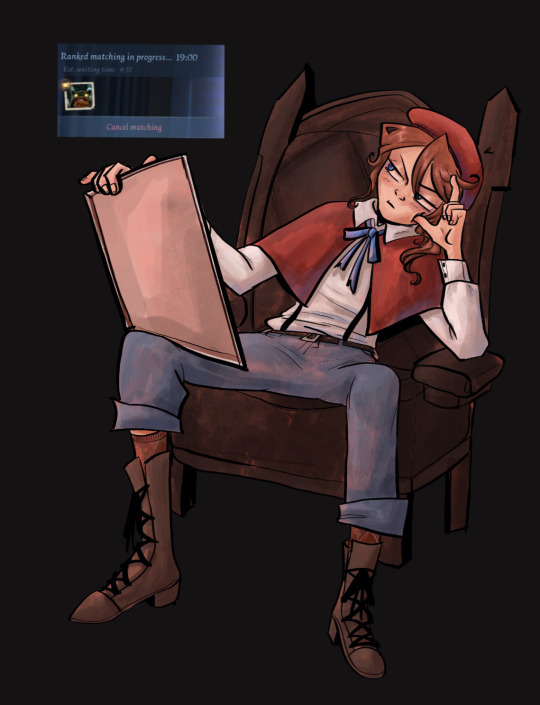
rank core
#drew this while inbetween rounds#idv#identity v fanart#identity v#idv edgar#edgar valden#painter idv#yes this is the default chair#my idv apartment is emptyyyyy#ALSO NO ONE LOOK AT BON BON NO FRAME PFP LMAOOOOO
244 notes
·
View notes
Text






1 - 2 -<3>
Will: V...? V: ...hmn... Will: Ah shit V... it's getting worse isn't it? V: Every day.... Will: Can you stand? V: Will... I... I don't think I've got much time left... Will: Hey it's okay. What ever happens, I'll be here. I'm not going anywhere.
#oc: william eriksson#male v#default v#I'm not okaaaaaayyyyyy#Will can't catch a break#poor boy going through a rollercoaster internally#I knew this was going this direction for so looooooooong and was avoiding it but ahahaaaaaaa#cyberpunk 2077
26 notes
·
View notes
Text



Summer vacation is over! Dulce felt like it only lasted two days *looks at the camera* buuut she's excited to finally go to the Santoro Academy of Culinary Arts.
Translation:
En el nombre del Padre, del Hijo, y del Espíritu Santo. Amén. = In the name of the Father, the Son, and the Holy Spirit. Amen.
Transcript:
Noemí: [Does the sign of the cross over her daughter] En el nombre del Padre, del Hijo, y del Espíritu Santo. Amén.
Noemí: Now you are ready for your first day at culinary school!
Dulce: Mami, I’ve been ready.
Noemí: Well, now you’re extra ready.
#english is my first language but i wasn't sure how to say persignar in english 😅 is it simply to bless?? to cross??#idk you guys probably know what i mean#also i really the size of aurorangen's pics so i'm using the same dimensions as her!! v cute#funny enough at the beginning of the gen i also changed my eye default to the same one she has LOL#oh yeah so now the banner looks a bit diff now too#dulce alegria#noemi alegria#tjolc gen 2#tjol challenge#tjolc#alegria legacy#matchalovertrait#ts4#the sims 4#sims 4 legacy#sims#sims 4
63 notes
·
View notes